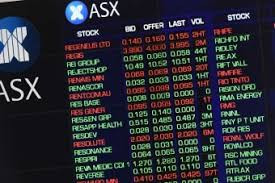Weekly market update
Written and accurate as at: Aug 13, 2018 Current Stats & Facts

The Australiam market added +0.7% last week, led by financials which gained +2.1% as the big banks made gains. Trade tensions persisted and weighed on commodity prices, although the resource sector managed to finish up +0.5%, while weaker US payroll data saw bonds rally, and the bond-proxy REIT sector ended +1.1% higher. All that said, company-level factors generally drove stock prices as we moved further into reporting season.
Amcor (AMC, -6.7%) is still yet to report, but was one of the week’s worst performers as it announced the intention to takeover Bemis, a US-listed packaging company. The tie up makes sense at a strategic level; Bemis is focused on “flexibles” packaging in North America, which compliments AMC’s existing position in the “rigids” packaging market and provides potential synergies for the latter’s flexibles business in Europe. AMC management have a good track record in acquisition integration and in extracting synergies. However at this point the market is focused on the premium paid, where it does feel like AMC have had to give up a lot of the value of future synergies up-front to Bemis shareholders, in order to get the deal over the line. The all-scrip deal is effectively priced at a 25% premium to Bemis’s previous price, although this factors in the strong run AMC has enjoyed since early May.
Erstwhile Amcor division Orora (ORA, -6.0%) was also among the weakest stocks, following an earnings miss. The disappointment was marginal, but the stock reaction demonstrates the vulnerabilities amid the more-richly valued stocks in the market; ORA’s NTM P/E had been closing in on 20x in recent times.
In the same vein, online recruitment company Seek (SEK, -6.7%) pre-announced their result, which was in-line with this year’s expectation but saw lower guidance for FY19. SEK is attempting to move from its traditional “job board” model to a search franchise which helps companies identify candidates. However the costs involved continue to weigh on earnings and, with a NTM P/E valuation in the thirties, the market’s reaction expresses a frustration with a company which is priced for growth but not at this point delivering.
Like SEK, AGL Energy (AGL, -5.5%) delivered on expectation for FY18 but also guided to a lower FY19 on a combination of falling power prices, rising capital intensity and increased competition. Power prices remain a political pressure point and AGL has had to commit to proactively approach the roughly 15% of its customer base which has not yet shifted to market-based prices in order to help them move to a better package.
Elsewhere building materials maker James Hardie (JHX, -5.0%) also disappointed investors as their share of the US market is improving at a slower rate than many hoped, while increased pulp and freight costs are weighing on their margins. Ramsay Health Care (RHC, -3.2%) did not report, but dropped on a bad result from a comparable company in the UK, which displayed the tough trends in that market.
Finally, on the negative side, AMP (AMP) had effectively pre-announced earnings several weeks ago when they revealed provisions and remediation costs related to the Royal Commission, but had not provided an operational update on flows and margins, leaving many fearful of a “blow-up” here. As it transpired, fund outflows were not anywhere near as bad as many feared, while margin pressure also seems to be relatively contained. The stock fell -2.6% despite a relatively benign result, possibly due to fear at what could be revealed at its scheduled reappearance before the Royal Commission this week.
The casinos did well last week. Crown (CWN, +6.1%) delivered a decent result which showed strength in the VIP segment and in Melbourne as well as signs of recovery in Perth. Star Entertainment (SGR, +4.4%) gained in sympathy, given its VIP exposure. Tabcorp (TAH, +6.0%) also had a good week, following a period in the doldrums post its merger with Tatts, with a result which was not as bad as many feared and underpinned some optimism on the deal’s synergies. Metcash (MTS, +4.6%) enjoyed a strong run into this week’s buyback.
In resources, there are signs of cost pressures starting to re-emerge. South32 (S32, +5.8%) is still yet to report but continued to do well off the back of constrained supply in the alumina market. ALS (ALQ, +4.3%) continues to perform well following its AGM which revealed persistent strength in demand for its mineral testing services as miners look to develop and expand production.
Commonwealth Bank’s (CBA, +3.5%) result was reasonable, given the backdrop. Many investors feared further re-basing under the new CEO, which did not transpire. Nevertheless, the result demonstrates the tough operating conditions for banks – with weaker loan volumes and persistent margin pressure given a reluctance to increase mortgage prices in the current political environment. Their historically low relative valuation reflects this situation, but at this point we see limited opportunity for the banks to significantly outperform the market over the near term. Elsewhere in financials, Suncorp (SUN, +5.0%) also pleasantly surprised the market with a rebound in general insurance margins, helped by the Business Improvement Program (BIP). However this good news was partially offset by softer performance from its bank division and by a disappointing price from the sale of its life insurance business. The net effect is likely to be a 2-3% increase in consensus earnings expectations for FY19.










